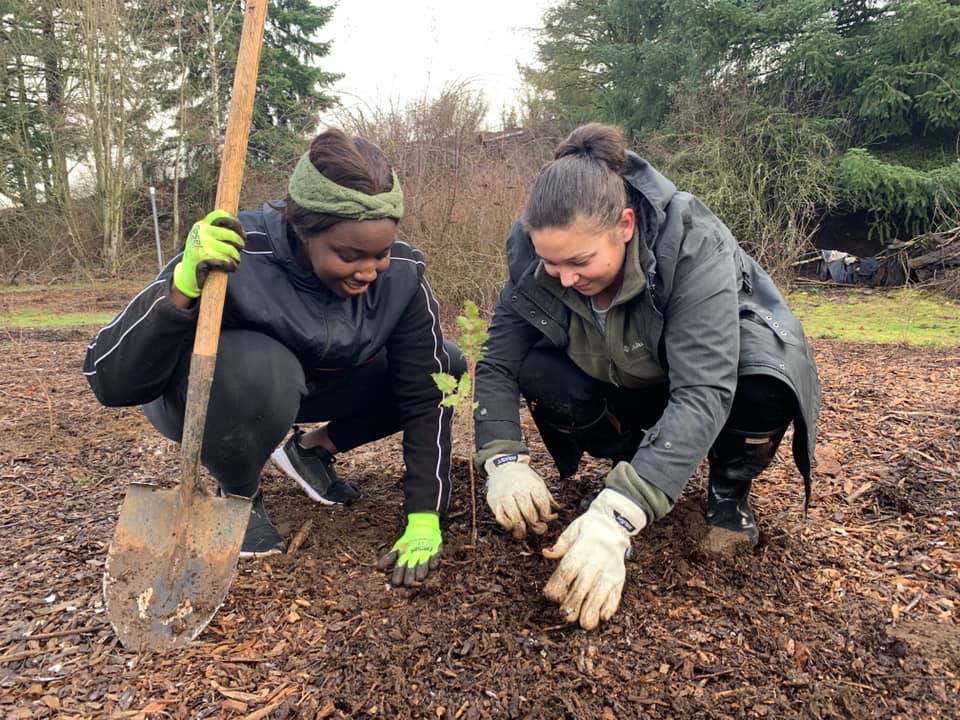Students reflect on what February means to campus community
On Feb. 20, students and staff celebrated the Lunar New Year event held on the WSU Vancouver campus. Education professor Shameem Rakha delivered opening remarks at the event, at one point stating, “We have students who are black on this campus. All apart of a group who have been historically, systematically, institutionally and individually minoritized and marginalized within the community and on this campus.” She added, “Yet, there is no celebration of that rich history and resilient group of people… Any one of us could have looked around and thought ‘who is celebrating Black History Month?’”

February is recognized across the nation as Black History Month; a time to celebrate the long history of black culture in America.
However, to some WSU Vancouver students, more recognition is necessary.
Maimouna Berthe, a public administration management senior at WSU Vancouver who is from the West African country of Mali, said, “I think it [Black History Month] should be more than one month. The culture is huge for just a month.”
When asked if she felt WSU Vancouver properly recognized Black History Month, Berthe, a member of the WSU Vancouver Black People United club, said no.
“The thing people forget is that black Americans are part of American history,” Berthe said.
Aemri Marks, a junior psychology major at WSU Vancouver, echoed Berthe’s feelings toward the representation of Black History Month at WSU Vancouver. “Outside of BPU or another ethnic group on campus, WSU Vancouver itself doesn’t make any effort to publicize Black History Month,” Marks said. “There have been no events, no fliers. [It’s] not talked about at all.”
Marks, the current activities coordinator for Black People United, said she uses Black History Month to learn new things.
“I think a lot of what we learn in school — elementary through high school — is about slavery in America,” Marks said. “We don’t learn about the black inventors and the scientists and all of the good that came after that. Things you don’t really get to delve into until you take a college course.”
“I always think that black history month isn’t really for black people. It’s for non-black people to learn about black people.”
Aemri Marks, WSU Vancouver psychology major
Marks concluded, “I always think that black history month isn’t really for black people. It’s for non-black people to learn about black people.”
Sharon Njoroge, a social science major, said she also likes to use the month to teach herself more about black history and immerse herself in black art, culture, authors and revolutionaries.
“Having come from Africa I know my African culture,” Njoroge said. “Getting to know the wonderful people who paved the way for me to be able to live a comfortable life in America with minimal struggle is really impactful.”
Jose Scott, 2017-18 Associated Students of Washington State University Vancouver president, Public Affairs alumni and founder of the WSU Vancouver Black People United club, said he also uses February as a time to learn about more than what is taught in traditional curriculum.
“Black history is as important as American history,” Scott said. “It gives us a time to learn about black history in the United States. I wish we had other times to talk about it other than February.”
“If we remain silent of issues of acknowledgment than the culture and our struggles are never going to be recognized because that is not the way a predominantly white institution functions.”
Jose Scott, former ASWSUV president and founder of the Black People United club at WSU Vancouver
Scott started the Black People United club in the fall of 2015. According to Scott, prior to becoming a club, BPU was a committee on campus. “It was for the unification of black folk on campus,” Scott said. “Because there were so few of us it was a place we could discuss our struggles and talk.”
Scott said he feels that representation on campus is a group effort. “I think that as individuals and organizations we can all do more to honor not just black history but history in general,” Scott said. “If we remain silent of issues of acknowledgment than the culture and our struggles are never going to be recognized because that is not the way a predominantly white institution functions.”
Mandipa Masike, the vice president of Black People United and freshman communications major said she feels WSU Vancouver could make better use of fliers regarding Black History Month and getting people more excited and aware of it.
The Black People United club meets from 2 to 3 p.m. every Thursday in Firstenburg Student Commons, Room 104 to discuss current events, share opinions and plan events. BPU meetings are open to all students who wish to attend.
A previous version of this story was published on Feb. 11, 2019, with the headline “Black History Month, a short 28 days in recognition of a long history.”
